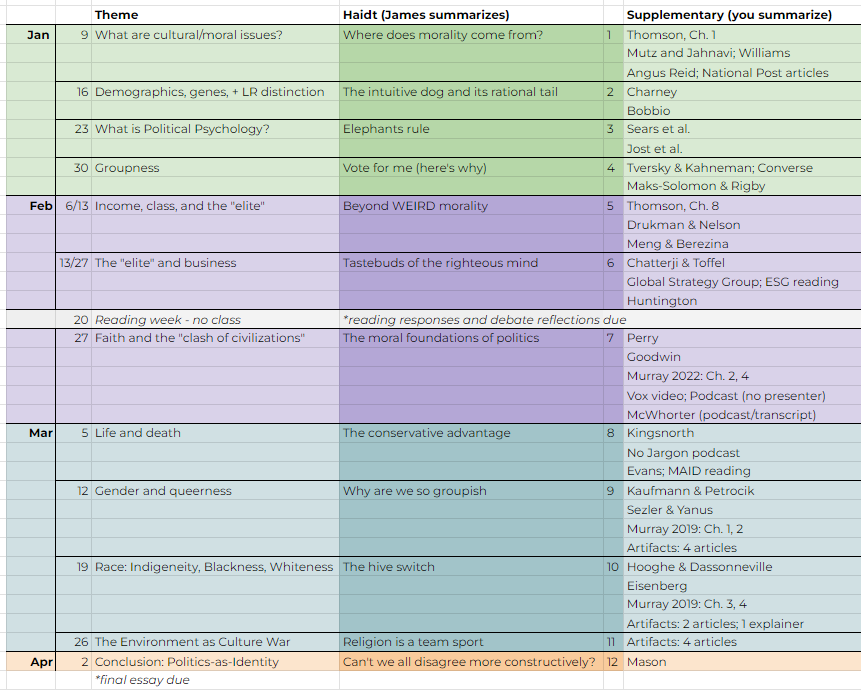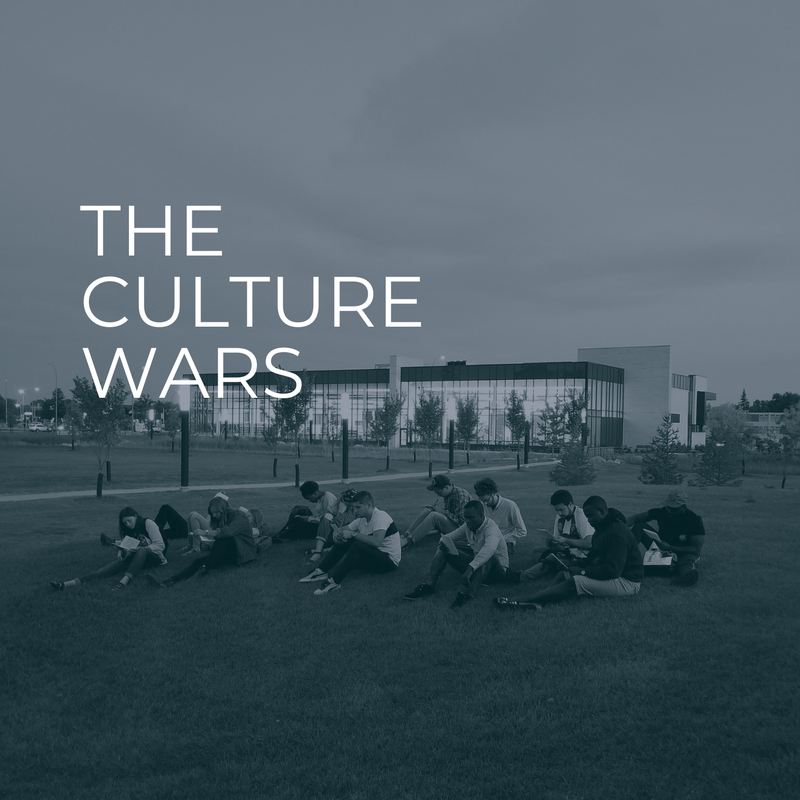The Culture WarsWhy do people disagree so vehemently about gender identity, affirmative action, wealth redistribution, or climate change? Why do people get angry when their core beliefs are challenged? How does social media (and other technology) contribute to polarization and the breakdown of social cohesion? The concept of a "culture war" has existed in American discourse for over 30 years, describing a movement toward group affiliation based on contemporary expressions of moral virtue rather than more traditional categories such as religious or political affiliation, ethnicity, social class, or economic status. This course examines how such a political cleavage has come to exist, and its implications for social cohesion and trust in public institutions. We will explore the ideas and evidence surrounding this concept, including the nature/nurture debate about the origin of variation in social norms.
Assignments
Course ScheduleTextsPlease note that posting a text does not necessarily mean its content is endorsed. Some of this content is academic, some is popular and polemical (ie. artifacts intended to stir debate).
Primary texts
Week 1: What differentiates cultural/moral issues from other ones?
Week 2: Interrogating determinism - Demographics, genes, and the left-right distinction
Week 3/4; Political Psychology - How groups became the contemporary unit of evaluation
Week 5/6: Faith and the "clash of civilizations" - Good and evil in secular vs. sacred domains
Week 7: Life & Death - Debates over who determines the sanctity of life (human vs. divine agency)
Week 8/9: Gender and Queerness - The genesis and evolution of a new social order
Week 10: Race: Indigeneity, Blackness, and Whiteness - Demographic shifts change the conversation
Week 11: The Environment - Debates over the balance between attraction ("market") and compulsion ("law")
Week 12: Conclusion - Politics as religion and culture?
Supplementary texts
|
|

